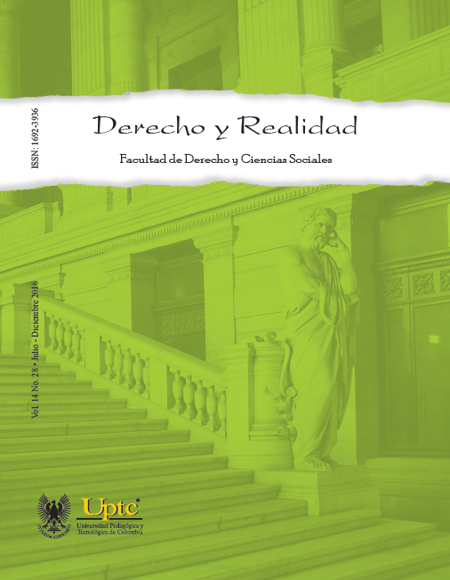Ayni Llajta: Community Work as the Foundation of the Democratization Process in Bolivia

Abstract
Bolivia has been experimenting for more than three decades a process of democratic openness, but this process does not consist in strengthening the institutions of the Bolivian State or in making more effective electoral mechanisms. Rather, it consists in structurally questioning that particular form of understanding politics and reducing it to state dynamics. The main objective of the paper is to demonstrate that, beyond institutional strengthening, the changes in Bolivia respond to an opening to other sectors of Bolivian society that had been marginalized. And that inclusion process generated a radical transformation, which has no setback, because it included the look and forms of organization of those who were being excluded, because it gave the floor to new worldviews that have transformed the political dynamics in the country, at the moment of limiting it. This process is characterized by the inclusion of community ethical principles that question the foundation of Western bourgeois society.
Keywords
democratization, State, ethical principles, cultural heritage, social movements
References
Badiou, A. (2000). Movimiento social y representación política. Revista Acontecimiento, (19-20).
Binder, A. (1991). La sociedad fragmentada. Caracas. Recuperado de www.chubut.gov.ar/portal/wp.../wp.../7/.../LA-SOCIEDAD-FRAGMENTADA.doc
Boron, A. (2000). Tras el búho de Minerva. Mercado contra democracia en el capitalismo de fin de siglo. Buenos Aires: CLACSO.
Braudel, F. (1993). Las civilizaciones actuales. Estudio de historia económica y social. Madrid: Technos.
De Sousa Santos, B. (2008). Pensar el Estado y la sociedad: desafíos actuales. La Paz: Coedición CLACSO, Muela del Diablo, Comuna.
García, A., Prada, R., Tapia, L. & Camacho, O. V. (2010). El Estado: campo de lucha. La Paz: Coedición CLACSO, Muela del Diablo, Comuna.
Lander, E. (2000). Ciencias sociales: saberes coloniales y eurocéntrico. En E. Lander (comp.). La colonialidad del saber: eurocentrismo y ciencias sociales. Perspectivas Latinoamericanas (p. 11-40). Buenos Aires: CLACSO.
Memmi, A. (1966). Retrato del colonizado, precedido por el retrato del colonizador. Prólogo de Jean Paul Sartre. Buenos Aires: Ediciones de La Flor.
Quijano, A. (2000). Colonialidad del poder, eurocentrismo y América Latina. En E. Lander (comp.) La colonialidad del saber: eurocentrismo y ciencias sociales. Perspectivas latinoamericanas. (págs. consultadas). Buenos Aires: CLACSO.
Rancière, J. (1996). El desacuerdo. Política y filosofía. Buenos Aires: Nueva Visión.
Rancière, J. (2007). El odio a la democracia. Buenos Aires: Amorrortu.
Tapia, L. (2008). Bolivia, 25 años construyendo la democracia. Visiones sobre el proceso democrático en Bolivia 1982-2007. La Paz, Bolivia: Vicepresidencia de la República, CIDES/UMSA, FBDM, FES-ILDIS, PADEP/GTZ, Idea Internacional, PNUD-Bolivia.
Tapia, L. (2008a). Política Salvaje. CLACSO Coediciones. La Paz: CLACSO, Muela del Diablo, Comuna.
Tapia, L. (2008b). La reforma del sentido común en la dominación neoliberal y en la constitución de nuevos bloques históricos nacional-populares. En A. E. Ceceña (coord.) De los saberes de la emancipación y de la dominación (p.101-113). Buenos Aires: Consejo Latinoamericano de Ciencias Sociales CLACSO.
Yovel, Y. (1995). Spinoza, el marrano de la razón. Barcelona: Anaya & Mario Muchnik.
Zavaleta, R. (2009). La autodeterminación de las masas. En L. Tapia (comp.). Bogotá: CLACSO-Siglo del Hombre.